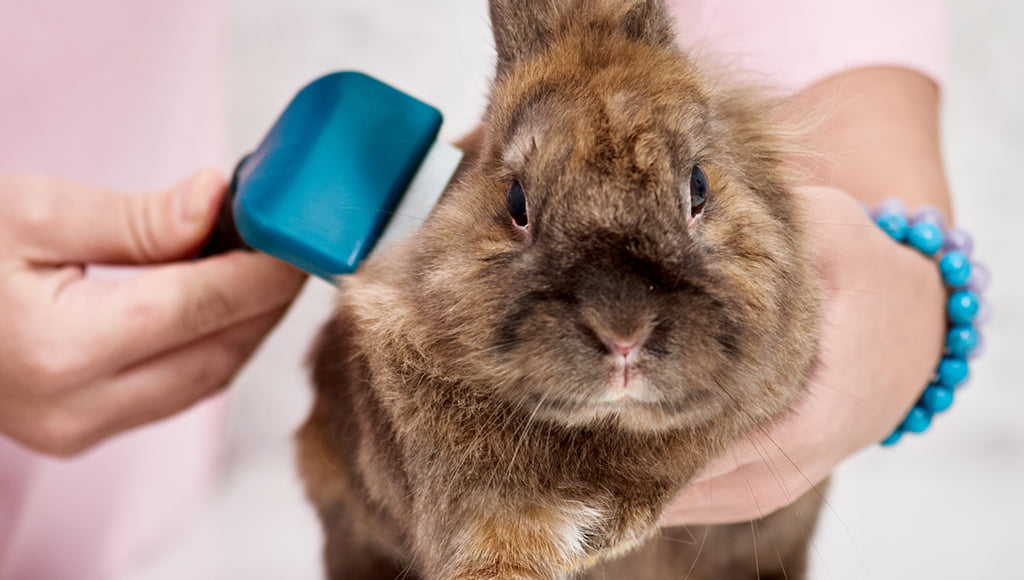Table of Contents
Rabbits are delightful pets that require proper care and attention to thrive. Establishing positive habits for pet rabbits is crucial for their well-being. In this article, we explore 10 essential practices to ensure your bunny is happy, healthy, and well-adjusted.

Provide a Balanced Diet
A balanced diet is fundamental for your rabbit’s health. Fresh hay, vegetables, and a limited amount of high-quality pellets are essential components. Ensure your rabbit has constant access to fresh water. For more information on rabbit nutrition, visit House Rabbit Society.
Regular Exercise
Exercise is vital for your rabbit’s physical and mental health. Allow your rabbit to have daily playtime outside of its cage in a safe, supervised area. This helps prevent obesity and promotes natural behaviors. Learn more about rabbit exercise at PDSA Rabbit Exercise.
Social Interaction
Rabbits are social animals that thrive on interaction. Spend quality time with your rabbit each day, and consider adopting a second rabbit to provide companionship. Ensure introductions are gradual and supervised. For tips on rabbit socialization, visit RSPCA Rabbit Company.
Grooming and Hygiene
Regular grooming helps keep your rabbit’s coat healthy and reduces the risk of hairballs. Brush your rabbit frequently, especially during shedding seasons. Also, check and clean their ears, and trim their nails as needed. For grooming tips, see Rabbit Hole Hay Grooming Tips.
Environmental Enrichment
Providing environmental enrichment is crucial for your rabbit’s mental stimulation. Include toys, tunnels, and hiding places in their living space. Rotate toys regularly to keep their environment interesting. For enrichment ideas, visit Petplan Rabbit Enrichment.
Proper Housing
Ensure your rabbit has a spacious and secure living environment. Their cage should be large enough to allow them to move around comfortably and include a separate area for sleeping. Clean the cage regularly to maintain hygiene. For housing recommendations, see Blue Cross Rabbit Housing.
Health Check-Ups
Regular veterinary check-ups are essential to monitor your rabbit’s health. Schedule annual visits and consult your vet if you notice any changes in behavior or physical condition. For more on rabbit health, visit Vets4Pets Rabbit Health Checks.
Litter Training
Litter training can make cleaning up after your rabbit easier and improve their living conditions. Use a litter box with rabbit-safe litter, and place it in a corner of their cage. Reward your rabbit with treats when they use the litter box correctly. For litter training tips, visit The Spruce Pets.
Handling and Bonding
Proper handling is important for building a bond with your rabbit. Always support their hindquarters and avoid sudden movements. Spend time holding and gently stroking your rabbit to build trust and affection. For handling tips, see PetMD Handling Tips.
Monitoring Behavior
Keep a close eye on your rabbit’s behavior for signs of stress, illness, or discomfort. Changes in appetite, grooming habits, or activity levels can indicate health issues. Promptly address any concerns with your veterinarian. For more on rabbit behavior, visit Veterinary Partner Rabbit Behavior.
Conclusion
Establishing positive habits for pet rabbits is key to ensuring they lead a happy and healthy life. By providing proper nutrition, exercise, social interaction, and regular veterinary care, you can create a nurturing environment for your bunny. For more tips on rabbit care, check out our Rabbit Care Guide.
FAQs on Positive Habits for Pet Rabbits
How often should I groom my rabbit?
Rabbits should be groomed at least once a week, with more frequent grooming during shedding seasons to prevent hairballs and keep their coat healthy.
What should I feed my rabbit?
A balanced diet for rabbits includes fresh hay, vegetables, and a limited amount of high-quality pellets. Always provide fresh water.
How can I litter train my rabbit?
Use a rabbit-safe litter box and place it in a corner of their cage. Reward your rabbit with treats when they use the litter box correctly to reinforce positive behavior.
How much exercise does my rabbit need?
Rabbits need daily exercise outside of their cage. Provide a safe, supervised area for them to play and explore to promote physical and mental health.
What are signs of illness in rabbits?
Signs of illness include changes in appetite, grooming habits, and activity levels. If you notice any of these symptoms, consult your veterinarian promptly.
How can I socialize my rabbit?
Spend quality time with your rabbit each day, and consider adopting a second rabbit for companionship. Introduce new rabbits gradually and under supervision to ensure they get along.











